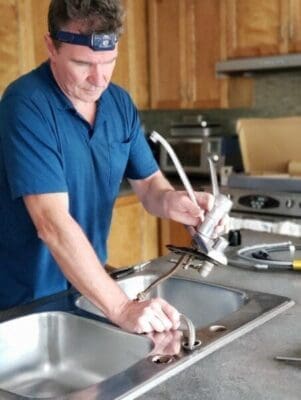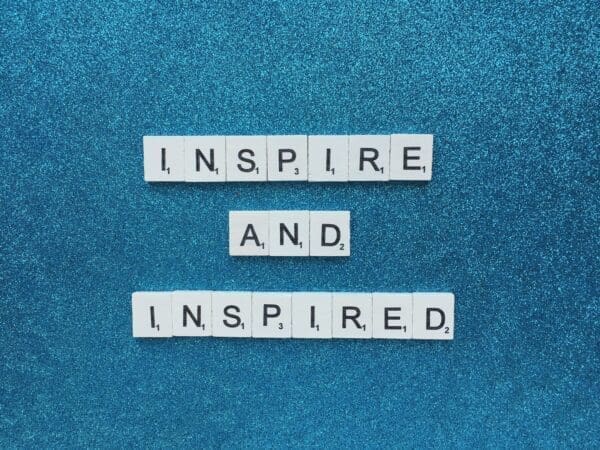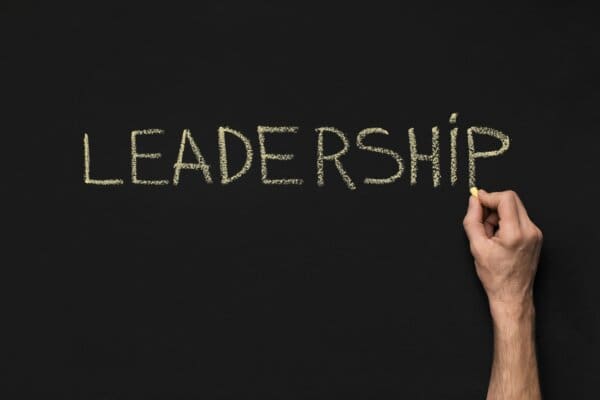Authority Magazine ‘Emotional Intelligence’ Interview
Recently, I had the pleasure of being interviewed by Parveen Panwar for Authority Magazine. In the interview, we discuss all things Emotional Intelligence (EI). Take a look at the full article on the Authority Magazine blog.
You can read a full copy of the interview below:
Thank you so much for joining us in this interview series! Before we dive into the main focus of our interview, our readers would love to “get to know you” a bit better. Can you tell us a bit about your childhood backstory?
A gang of 14-year-old boys were huddled around me in the playground. Sniggering. Joking. Handing over their money. I’d found a sports bag 2-days ago on the way home from school, dumped in a field. When I opened it, I was surprised. Rammed full of ‘Gentleman’s magazines’ – if you know what I mean. What was a 14-year-old boy to do? I took them to school to sell them for 10p each. This was my first taste of being an entrepreneur and I loved it. Sadly, the venture was limited. I’d also learnt about supply and demand. There was no more supply, even though I had stimulated demand.
‘Do you use bottled water?’. The year is 1989. I am fresh out of senior school and starting my first, maybe second, business – Depending on whether selling magazines at school is defined as a business. Unfortunately, this is not a Richard Branson story. I am sad to say. More of a guy that never gives up and is still yet to make his fortune. I had seen an advert in a paper to sell water filters – A pyramid selling type of affair. I was 16. Having the door slammed in your face 50 times a day at that age, or any age really does toughen you up. Six months later, and with my face looking like a front door, I decided college was the way forward. A 2-year business course – ‘That is what is needed’, I thought.

I emerged from college a more rounded individual, had made a lot of friends, and knew a bit more about business. I placed my first advert in the paper. Send me all your pictures that you have in the loft, in shoeboxes, and squirrelled away, and I’ll put them into albums for you, for a cost. A nice idea. The part I missed was that no-one would send their treasured memories through the post. Maybe someone might still respond to that advert from 1991? ‘Great idea – here’s all my treasured possessions young man and a fat cheque’. Maybe not.
My Dad had worked all his life in a supermarket. From selling rabbits outside the store to becoming a Regional Director. An Eastend London lad done well. Incidentally, moving-house, as he got promoted took a strange turn when we moved from Essex – an area known for its unusual accent, to Oxford – One known for the Queen’s English. The first day in an Oxford school at 11 years old, you’d think that the school would have provided a translator to help the other kids understand me! Anyway, back to the supermarket. Not wanting to work in a store, I applied to be a buyer at head office. It didn’t dawn on me that if I got the job, the 4-hour round-trip commute I had just done, might become a permanent fixture. It did. For 15-years I stood on the train to London for 4 hours a day!
After re-applying for my own job 8 times (Supermarkets are not really people-focused) I chose to start out on my own. When I say, I chose, I meant that my wife, Gayle, said, ‘I’ve had enough of this. Take the day off sick and figure out what you want to do’.
I had achieved a great responsibility, both in leading a huge team and managing over £1bn of goods. I thought my business knowledge had grown significantly, but nothing prepared me for what was about to happen as a start-up…
What or who inspired you to pursue your career? We’d love to hear the story.
It was like a door had been opened. I’d always been fascinated by behaviour, how we think and what makes us tick. I read Napoleon Hill’s book, ‘Think and Grow Rich’ at the age of 16 and I was hooked. If you have not read it, please do.
The next dose of inspiration came in the form of a speaker. At every Sainsbury’s (UK Supermarket chain) annual conference, a guest speaker would do their thing on stage. This time, for me, it was different. Jack Black (not the actor) was strutting up and downstage sharing his mental fitness programme. Telling great stories and inspiring everyone. I was hooked. A Scotsman with a desire to share a way to think yourself successful, and he shared it like a pastor in the deep South of the States – Evangelical-like.
From 1998 I would join Mindstore to go and see Jack on stage every year at my own expense. Sometimes twice a year. What I came to realise was that what Jack was sharing was no different to other motivation speakers who knew that belief, expectation and desire (BED) were essential to success. I just liked the way the Jack spoke and shared his version and did it through really engaging stories. This was to spark my love for storytelling. Hopefully, you can tell.

In 2003 I had decided to leave Sainsbury’s and set-up on my own. I needed Jack more than ever. I went to Glasgow to see him and he announced that he would be launching ‘retreats’. Week-long intimate gatherings. His first, a trial was in 2 months and 20 lucky people could attend from this crowd of 10,000, and for free. They just need to write to Mindstore and say why.
I wrote in. I got rejected but I knew I was going because I had ‘programmed it’ – A Mindstore way of thinking to get what you want. A week later Mindstore wrote and said that they had made a mistake – I was to attend. <Here’s my surprised face> Arriving at the Buddhist retreat was everything I had wanted it to be. Then we were told – ‘No outside contact’. My son was 3 weeks old. I was allowed to call my wife. Happy, she was not. See you in a week.
What happened on the retreat cannot be shared. Suffice to say that finding my inspiration was just one of many moments that I will treasure to the grave. Plus, hugging Jack Black a lot through the retreat was not something 30-something-year-old British males do – or at least I thought they didn’t. That changed.
Last year I had dragonflies tattooed on my back. #justsaying
Sticky Learning ® is 7 times more effective than 1-day training courses. Plus, you will get a Chain of Evidence proving your Return on Investment. Discover soft skills training that changes behaviours long term.

None of us can achieve success without some help along the way. Was there a particular person who you feel gave you the most help or encouragement to be who you are today? Can you share a story about that?
I am going to do a Snoop Dogg here! Without arrogance, I am going to say me.
Yes, many people encouraged me, supported me, and loved me on my journey, even when I didn’t deserve their compassion because I worked an 18-hour day and was horrible & stressed. I have thanked, sent presents, and applauded them on many occasions. It is I that ultimately made it happen. We don’t give ourselves a well done enough. We need to. And particularly in this world where we now understand the importance of mental health.
The resilience to keep going. To not give up, to not say no, to not throw the towel in, is hard and whilst people help, it is us that has to make that hard decision to continue to endure the stress, the long hours, and have the strength not to give up.
I meditate twice a day. We are not talking hours in a church, legs folded humming. We are talking 10-minutes, sometimes more. Once in the morning and once at night quietening my mind to listen. To listen to what I am missing. How could I approach a project in a different way? Increase sales? Engage my employees more? The challenge with meditation is not to push it too hard. As the Buddhist monk said, ‘We need to give the monkey brain a job, otherwise it will chatter at us. Give it the job of listening to our breathing’. By doing this, it quietens the mind and allows the left and right brains to get together and solve problems for you.

Can you share the funniest or most interesting mistake that occurred to you in the course of your career? What lesson or take away did you learn from that?
Remember that I mentioned the water filtering business? Selling it door to door. Well, it wasn’t an absolute disaster. Someone actually bought one. Yes, it surprised me too. ‘We’d like to buy the ‘20S’. This was the under-the-sink product. Imagine a 2 litre Coke size bottle fitting under the sink and filtering your tap water so that the water you drank was purer. Like having Evian on-tap. Aha – the patter returns. My first sale!
Being the smart individual that I thought I was, I didn’t need a plumber to fit these things. I’d seen a video. Remember there was no YouTube back then – This is the 90’s. It was a cassette of a plumber fitting these things. 1.5 hours of Ron the plumber sharing his experience. Any minute I expected a buxom woman to walk-in on Ron. Sadly, it was just a boring plumbing video.
‘Yes, Mr Hammersmith, I’ll be round on Saturday morning to fit your 20S. Should take about 45-minutes.’ All arranged. I’d borrowed some tools from my Dad, forced myself to read the instructions (most unlike me), and was ready to conclude my first sale.
Basically, you clamp this tap-like thing onto the pipe under the sink, to make the flow go through the filter and then out of the tap on the sink above. I’d taken out all the household cleaning products, drawers, and other paraphernalia to give me the very best chance of installing the 20S well and in under 45 minutes. Tools laid out. Instructions clear. Ready to rock and roll. Plus, they’d made me a cup of tea – nice people. Though that was to change.
Surprisingly it went well. The water was not bouncing off of the ceiling and the kitchen roll was showing no signs of leakage when I wrapped it around the fitted bits, as Ron had shown me on the cassette. My god – I’d actually done it. Proud was not the word. I was about to remove my underpants to now wear them outside of my trousers. Though professionalism stopped me.
Before I put everything back, I asked Mr Hammersmith to take a look. He filled up a glass with water. Drank it. Remarked at the purity and thanked me. ‘So, I’ll just tidy-up, put everything back and then ask you for payment. Be about 5 minutes. Ok?’. My first payment – I had a vision of buying myself a tracksuit top later to celebrate. I lifted up the drawer and slid it onto the rail things and pushed it back. Donk! Tried again. Something was stopping the drawer from sliding back. I bent down to take a look. The clamped-on tap thingy was in the way. <Insert many, many, many swear words>.
I had to pay for a plumber to fix what I could not. Plus, give-away the product for free. I was severely out of pocket.
My take-away? I am to DIY what Houdini was to glass blowing. Realise your limitations. Accept them. Capitalise on your strengths. Accept that most triumphs come from a team effort, and don’t try to cut corners because they’ll always bite you in the bum.

The road to success is hard and requires tremendous dedication. This question is obviously a big one, but what advice would you give to a young person who aspires to follow in your footsteps and emulate your success?
Don’t.
My son Jack (17) and I were discussing this very thing the other night when I picked him up from his girlfriend’s house.
I explained to Jack that the path I have taken is a tough one and not for everybody. My journey has been 14 years in corporate, followed by 18 years owning and managing an SME. Six failed businesses along the way. I would not choose my journey for others and certainly for my son. Here’s why…
Many years ago, I was working with a very successful client – Eric. He seemed to know very little of how to run a business, anything about soft skills, had no budget, no business plan, and yet was incredibly successful. This intrigued and annoyed me in equal measure. I was keen to find out what he had, that I did not – ‘Lazy intelligence’. I’d found the answer in a business book, quite by chance.
My path was/is to work hard – blood, sweat & tears hard – and ‘Eric’s was not. He got up late, finished early and even once said to me how he had spent most of his working day watching ‘Breaking Bad’ on his computer in his office. Eric seemed to just be lucky. I believe that you make your own luck and Eric did too. He just seemed to make more of it than I did! Our paths were different, and I reluctantly came to accept that I was not him and had to tread my own path. Though that did not stop me continually referring back to him, every day from then to now. Asking myself, if Darren would do it this way, how would Eric do it differently? It has helped me to choose another option many times. An easier path. A smarter path.
Jack understood. Was intrigued too. Jack has some of my traits and yet my advice was to be more like Eric. Find the smarter path because it will be a happier way forward.

Is there a particular book, film, or podcast that made a significant impact on you? Can you share a story or explain why it resonated with you so much?
Now you’re asking…! As a film buff, this is my kinda’ question…=
‘Moneyball’. A baseball film starring Brad Pitt. One of those true story films.
As an Englishman, I know nothing about baseball. Though in 2018 we saw a game when we were on holiday in the States. We watched the Tampa Bay Rays. I remember when we got out of the car in the car park, the parking attendant approached us and when we spoke to him, he said, ‘Say that again, people. I love your accent. You can park for free’. Brilliant! And then we watched the game. Wow! It goes on a long time, but we loved it.
The essence of the film is that Brad Pitt is the General Manager for a team and his players keep getting pinched by the clubs that can pay them more. In a meeting with his scouts, the scouts want to scout for better players, as they always have, but Brad feels like the same thing will just keep happening. Then Brad stumbles upon a statistician that is more interested in whether a player can get on first base, than what the scouts think. The statistician and Brad adopt an approach of not playing baseball the way others play of how they feel about players but using facts to drive the decisions. The team go on to achieve huge success winning 21 games in a row, which is unheard of in baseball.
The reason I like this film is that it is a constant nag to me. For example, we are trying to win the online presence race. Who can get more website visitors? The rules are SEO (Search Engine Optimisation) and largely they are set by the google algorithm. And backlinks are the key, and they are expensive. If I continue to play the game against big brands, I’ll lose. So, I ask myself, what is the Moneyball way?
The answer is to give the public what it wants. Jaw-dropping content. We strive to continue to give the public what they want. This interview is an example.
Can you share your favourite “Life Lesson Quote”? Why does that resonate with you so much?
‘If you think you can, or you think you can’t, you are absolutely right’.
Henry Ford said this, and he was spot on. Often, I think about this quote because it is a choice. Yes, there will be a million factors why you can’t, but people didn’t break through walls, or glass ceilings, thinking they can’t.
What are some of the most interesting or exciting projects you are working on now? How do you think that might help people?
Have you done one of those e-learning training courses in your business about cybersecurity?

Yes, you’ll know what I am talking about when I say ‘Next, next, next…’. A box-ticking exercise. The IT department has bought-in cyber security online training and asked everyone to do it. The employees get the email to complete the training and sometimes they cannot log in until they have completed the training. The problem is that the training changes nothing. Zip. Nowt. An employee’s behaviour does not change having completed the training. This is the problem and the opportunity.
About 3 years ago a £3bn global client approached us and said, ‘You guys know something <!> about behaviours and people and getting them to do stuff’. That was the start. They had looked at the cybersecurity online training market and decided that none of it actually changed what people did. They wanted more than a box-ticking exercise. Actually, they wanted people to make small changes in their behaviours to protect the business. Creating a ‘human firewall’. They had bought all the IT firewall solutions, like dark trace and other such MI5 sounding products, yet people were always going to be their biggest risk.
Cue ‘Cyril’. An online cybersecurity training portal that enables people to make small behavioural changes. Other training companies teach and test things like, ‘How many cybersecurity attacks were there in 2018?’. The Learner does not care. Yes, you told them 3 screens ago, but they are trying to get through this quickly and get back to their inbox because they know it will make no difference. Asking that question is like the driving assessor asking on your driving test, ‘How many brands of car are there?’. It has nothing to do with the change in behaviour you want to make.
The product launches in Spring 2021 and aims to grab 0.5% of the £700m cyber security online training market by 2024. We are extremely excited to see Cyril achieve what others have not, create real behavioural change, and prove it, in the cybersecurity online training space.
OK, thank you for all of that. Let’s now shift to the core focus of our interview. Can you briefly tell our readers a bit about why you are an authority on Emotional Intelligence?
I’m not.
There are many scientists and professors that understand the topic better. If by authority, you mean someone that is like you, and then has learnt soft skills, and trained it, over 20 years, then yes, I am an authority. I believe that by making topics personal, sharing stories, and sharing all of my mistakes, I can help people to improve their behaviour and to be the best version of themselves.
For the benefit of our readers, can you help to define what Emotional Intelligence is?
My answer comes from Jack, my son. I asked on Linkedin for people to sum-up emotional intelligence in less than 10 words. He did it very well:
“The ability to see, control and express emotion.”
Drops the mic (Or rather dropped it for Jack).
How is Emotional Intelligence different from what we normally refer to as intelligence?
I think it comes back to that famous picture of the animals and then the teacher testing them to see which one can climb a tree. The monkey is elated, and the fish is worried. For generations, intelligence has been about the rational, logical, and linear problem-solving ability of a person.

Can you help explain a few reasons why Emotional Intelligence is such an important characteristic? Can you share a story or give some examples?
Well, the best way to understand it, is to imagine if you were dealing with a person that had no emotional intelligence. And those people do exist. They are robotic in their nature. Some might describe them as introverts but remember that introverts prefer to do their thinking in their head, whereas extroverts prefer to do their thinking outside of their head – ‘talking it through’. Introverted doesn’t mean lacking in EI. They just demonstrate their emotions less readily and they may perceive other’s emotions better than you do.
If you were buying a car, imagine a salesperson with no emotional intelligence:
You: ‘How much is that car?’
Salesperson: ‘It says £7,650 on the windscreen’.
The person has not noticed that the answer is not to answer the question but to perceive the tone that accompanied the question. A tone of hoping for a better price.
Or imagine in a relationship where the husband has no emotional intelligence:
Wife: ‘We don’t need to get each other anniversary cards this year; we’ll save the money’.
Husband: ‘I agree. Waste of money’.
The husband has not sensed that his wife is testing his willingness to continue with the small things that matter to her.
Having emotional intelligence is a complementary ability to ‘intelligence’. By using both abilities you are more successful. Whether that be in your personal life or at work.
Would you feel comfortable sharing a story or anecdote about how Emotional Intelligence has helped you in your life? We would love to hear about it.
We were pitching for a large contract. This was very important to my business. We had prepared and prepared. My colleague was doing half the pitch and I did the other half. The audience was ready. A panel of 6.
I had opened-up the meeting. As my colleague started item 2 of the pitch and was 10-minutes in, I could see the audience start to twitch. Shuffle in their chair. One had his arms locked behind his head. Another member of the panel opened his mouth, very slightly to speak, but stopped so as not to interrupt. I waited for a pause from my colleague – ‘John, I think you had a question – what was it?’.
The audience had picked-up a fact that my colleague had said much earlier, and it had spun them. John asked his question, my colleague answered – just a minor misunderstanding, and they were ready to listen again. My colleague would usually pick-up on the changes in people – EI – but nerves were getting the better of him and he was blind to what he was seeing because he was focused on delivering his pitch well.
The lesson is about continually auditing what people are thinking. Slight changes in them can have meaning.
Can you share some specific examples of how Emotional Intelligence can help a person become more successful in the business world?
Presenting, selling, project managing, persuading, disciplining, managing, leading, are all terms we hear in the workplace. Skills we need to have to achieve the things we are paid to do. Each problem in sales, our projects, our people, can be solved logically. The problem is that the logical answer is not always the best answer.

The best story that demonstrates EI is of the CEO wanting to buy a private plane for the business. An intern is asked to assess whether the company needs one. Two weeks later the intern professionally presents the answer based on calculation upon calculation of fuel rates, travel, employee expenditure, and so on. The CEO listens intently. As the intern draws to a close, she asks the CEO, ‘What’s your decision?’. The CEO leans back in her big chair, and says, ‘Order the one with the leather seats’.
The intern had very competently solved the problem. Yet had not taken into account how the CEO feels. The CEO had dreamed of owning a company jet since she had started work. It was her dream. She just needed justification and the intern had presented a 60:40 against call on whether it was ok to buy one. The CEO could justify the 10-point difference between 60 and 50, from 60:40 to 50:50.
Specific tools to help you become more successful by using EI:
- Body language – Get used to auditing yours and the body language of others. Look for changes.
- Tone – Listen to people’s tones and start listening for when the tone and the words do not match.
- Feel – Share more of how you feel. Business was once no feeling. Let it now come back into all that you do at work.
Can you share a few examples of how Emotional Intelligence can help people have better relationships?
Sensing when someone does or does not want to do something, can help you to build better relationships. If you ignore those ‘little things’ they become the big things.
Last year my wife and I were invited to a birthday party. She didn’t really want to go. Each time I talked about the invite she always had something else to do. I was subconsciously ignoring what she was telling me. I was working in logical intelligence mode and not using my emotional intelligence.
Finally, I said to her, every time I want to talk about the invite, you have something else to do. She snapped back and an argument ensued. It took 15-minutes of an escalated discussion for me to understand that the reason she didn’t want to go was because of a very long time ago girlfriend was also going.
Logical intelligence – 691.
Emotional intelligence from me – zero.
Can you share a few examples of how Emotional Intelligence can help people have more optimal mental health?
I recently wrote an article about cabin fever because I was concerned about my own mental health, and that of others, during the lockdown period of Covid-19. My research for the article helped me understand that the number of people googling ‘cabin fever’ has not surprisingly skyrocketed. Plus, many people don’t know the signs to look for. Often, we don’t notice the change in ourselves over time in ourselves because we are so busy dealing with the changes. A little like the famous theory of boiling a frog. If you place the frog into boiling water it will jump out, but if you place it in water and slowly bring the water up to boiling, it will stay.

So, my first example is to know the signs of conditions like cabin fever, so that you know what look for. They are:
- Lethargy – Wanting to sleep all day. Frequent napping. Difficulty waking up.
- Sadness or depression/Withdrawn.
- Trouble concentrating.
- Lack of patience – You snap at people.
- Food cravings – Maybe junk food for comfort.
- Decreased motivation.
- Social Isolation.
- Changes in weight.
- Inability to cope with stress.
- Struggle to focus on one thing at a time.
- Not wanting to start new projects.
This is just one mental health problem, cabin fever, and there are many others. For each and every one of the mental health problems, the first thing is to notice it. To notice it you have to know what you are to notice, and the second part is to be open to noticing it. Maybe that is ‘allowing a friend’ to tell you that you have changed, without biting their head-off.
In my interview with Simon Blake, the CEO of Mental Health England, I asked him how people should notice the start of a mental health problem. In essence, the equivalent of a runny nose, that denotes a cold is on its way. His response was to look for changes in behaviour. Small ones. A colleague that says hello every morning stops. A friend that daydreams during a conversation that hasn’t before. A partner that snaps about something small. All could be signs of the start of a mental health problem, like cabin fever, and worthy of a follow-up, ‘What’s the matter?’.
Ok. Wonderful. Here is the main question of our interview. Can you recommend five things that anyone can do to develop a greater degree of Emotional Intelligence? Please share a story or example for each.
- Who, in your close circle of friends or colleagues, do you believe has high emotional intelligence? Identify that person. Compare them to you. Watch their emotional intelligence more closely, and ask yourself, how do they do EI better than you? What examples could you articulate, if asked?
- Read our article, What is Emotional Intelligence?
- Grab a learning buddy. We work better together. Find someone that is also interested in discovering more about this topic. Meet for 20-minutes every 2-weeks and discuss one item each on the topic of Emotional Intelligence. We find that people committed are more likely to do.
- Talking of commitment ask your boss if you can give a 20-minute presentation on the topic of Emotional intelligence’ at your next team meeting. You’ll not want to look bad, so you’ll do a lot to show that you know your stuff.
- Seek feedback from your line manager, your mentor, or your partner. They may have a take on your emotional intelligence. If nothing else, it may spark a discussion and then they become your learning buddy!
Do you think our educational system can do a better job at cultivating Emotional Intelligence? What specific recommendations would you make for schools to help students cultivate Emotional Intelligence?
Yes, but then the leading and closed nature of the question led me to that answer 😉
I suspect what underpins the question is what is thought by many – At school we teach logical/rational intelligence. Not anything else. Yes, we do, and it is not right because if the purpose of school and education is to prepare us for the future, then missing out all soft skills means that we are not prepared for the future. I obviously have empathy with the people in education. It’s a tough job. They do their best. How we teach soft skills and risk the already stretched curriculum? No idea. I have the luxury of pointing out the problem and yet without a solution.
Jack Ma, the Founder of Alibaba, said that we cannot compete with Artificial Intelligence (AI). We cannot process data quicker or solve logical problems quicker. The machines will always win. We can however improve our soft skills. Be better team builders. Share better visions. Inspire people. Machines cannot.
To that end, we do need to teach our children soft skills and early in their education. That said, waiting for a significant change in our education system is faulty thinking. As parents, I believe we can teach our children. Encourage them to learn these skills from books, from each other, practise, and share when we do it right and when we do it wrong.
Ok, we are nearly done. You are a person of great influence. If you could inspire a movement that would bring the most amount of good for the greatest number of people, what would that be? You never know what your idea can trigger.

Lovely question!
The ‘Just One More’ Movement.
Inspired by the film ‘Hacksaw Ridge’. A soldier that refused to carry a weapon due to his religious beliefs, yet wanted to serve, so he decided to be a medic in the Second World War. A true story. Desmond Doss saved over 75 soldiers and received the Medal of Honor without firing a single shot. As he saved each soldier he was motivated by his god and kept saying, ‘Please Lord, help me get just one more’.
From the heroes of yesteryear to the biggest challenge we face today – our environment. We need to move beyond just leaving the beach having collected the rubbish we took, but also going one step beyond. Simply, by grabbing one other piece of litter that was not ours. If everyone did the same – just one more – not only would we clear the beaches, but we might save – just one more – turtle, seabird, or dolphin from trying to live inside a plastic bag.
#justonemore.
We are very blessed that some of the biggest names in Business, VC funding, Sports, and Entertainment read this column. Is there a person in the world, or in the US, whom you would love to have a private breakfast or lunch with, and why? They might just see this, especially if we both tag them 🙂
James Dyson. I watched as Dyson became a household name from my childhood to now. His biography was everything I wanted to read about a British entrepreneur, as a budding 17-year-old one myself. His vision of simply wanting people to say, ‘I need to get the Dyson out’, rather than ‘I need to get out the Hoover’, was simple and brilliant.
Breakfast with James would be inspiring, I believe. He did not give up, he fought and won. He beat the big boys. If 1% of that could rub off on me at breakfast it would be an English breakfast to remember!




